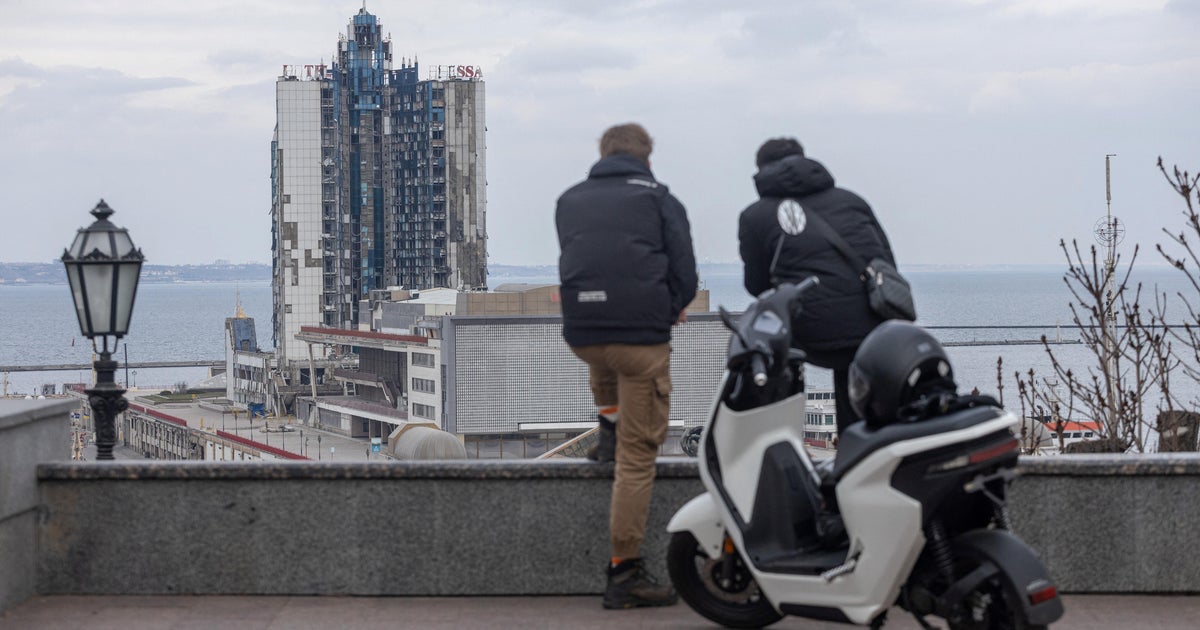Havana Syndrome in Vietnam: Possible Russian role in attack on Americans, according to new evidence
U.S. officials in Vietnam were injured in a Havana Syndrome style attack ahead of Vice President Kamala Harris's 2021 trip to Hanoi. Now, new evidence suggests Russia may have been involved — and that it may have been the Vietnamese themselves who were given technology that could have caused the injuries.
At the time, the U.S. embassy in Hanoi announced that a possible "anomalous health incident," the federal government's term for so-called Havana Syndrome attacks, was slowing Harris's arrival in Vietnam. 60 Minutes has learned that 11 people reported being struck in separate incidents before Harris entered the country: two people who were officials at the American embassy in Hanoi, and nine people who were part of a Defense Department advance team preparing for Harris's visit.
While at least some of the injured U.S. personnel were medevacked out of the country, Harris was unharmed and continued her trip to Hanoi after a three-hour delay in Singapore.
Symptoms of Havana Syndrome often include nausea, dizziness, migraines, and problems with vision and hearing that can persist over a long period of time. While U.S. officials cannot confirm what causes it, experts 60 Minutes has spoken with believe the incidents involve targeted sonic or microwave attacks.
60 Minutes has been investigating these attacks for more than five years. For the latest report, which aired on the broadcast this week, producers Michael Rey and Oriana Zill de Granados teamed up with Christo Grozev, an investigative journalist who currently leads investigative work for The Insider, a Latvia-based online publication specializing in Russia-focused investigative journalism. Grozev is well-known for his investigation into the poisoning of the late Russian opposition leader Alexey Navalny.
As 60 Minutes investigated the Hanoi incident, a source suggested that the Vietnamese themselves had been given some kind of technology that may have caused the "Havana Syndrome" attack. According to the source, the Vietnamese may have been told to use the technology to listen in on the Americans ahead of Harris's trip — but they may not have known this the technology could harm the people they were using it on.
In his research, Grozev found a document that seems to indicate this theory may be correct.
Five months before Harris's visit to Hanoi, an email was sent to the Security Council of Russia, the body of top Russian officials who head the country's defense and security agencies.
According to Grozev, a document within the email shows that Russian intelligence lobbied for and received permission from President Vladimir Putin to provide exclusive technology to Vietnamese security services. Among the list of recommended technologies to be shared were "LRAD acoustic emitters" and "short-wave equipment for scanning the human body."
LRAD, which stands for "long-range acoustic device," is a military-grade sonic weapon that discharges a targeted beam of sound at extremely high volume. An LRAD device was used to thwart a pirate attack on a cruise ship in 2005, and since then, the U.S. military has used the devices to send warnings in the field, such as cautioning people away from an Army base perimeter. But when left on at its highest volume, some LRAD systems can produce a sound pressure level of 162 decibels. The human pain threshold is about 130 decibels.
Based on his research, Grozev said he suspects Russia is sending weapons technology like this, which may be used in Havana Syndrome attacks, to foreign governments.
"I believe that Russia is assisting other governments with some operations that those governments may want to do on their own, and in this way establishing loyalty from these governments for future operations that Russia might need on their territory," Grozev told 60 Minutes.
Retired Army Lieutenant Colonel Greg Edgreen ran an investigation for the Defense Intelligence Agency into anomalous health incidents, which have been referred to as Havana Syndrome attacks because they were first reported by American officials based in the U.S. embassy in Cuba in 2016. He told 60 Minutes he also believes Russians were involved in the 2021 attack in Vietnam.
"They saw us getting closer and closer to Cuba, and they wanted to stop it…" Edgreen said. "Then they tried to follow up and do the same thing with Vietnam, another long-term strategic ally to Hanoi, by disrupting Vice President Kamala Harris' trip to Vietnam."
While running the military investigation into anomalous health incidents, Edgreen said the Pentagon supported his investigation into whether Russia was behind the attacks. But the Trump and Biden administrations set the bar for proof impossibly high, he said.
Grozev believes the U.S. government would require a very high threshold of certainty before they could acknowledge the Kremlin's role — because of what will happen if they do.
"Once you admit that this happened, it is a Pandora['s] box," Grozev said. "It requires you to confront the fact that you have your arch enemy acting against your own people, your own intelligence workers, on your territory, and this is nothing other than a declaration of war."
The video above was originally published on March 31, 2024. It was produced by Brit McCandless Farmer and edited by Scott Rosann.



